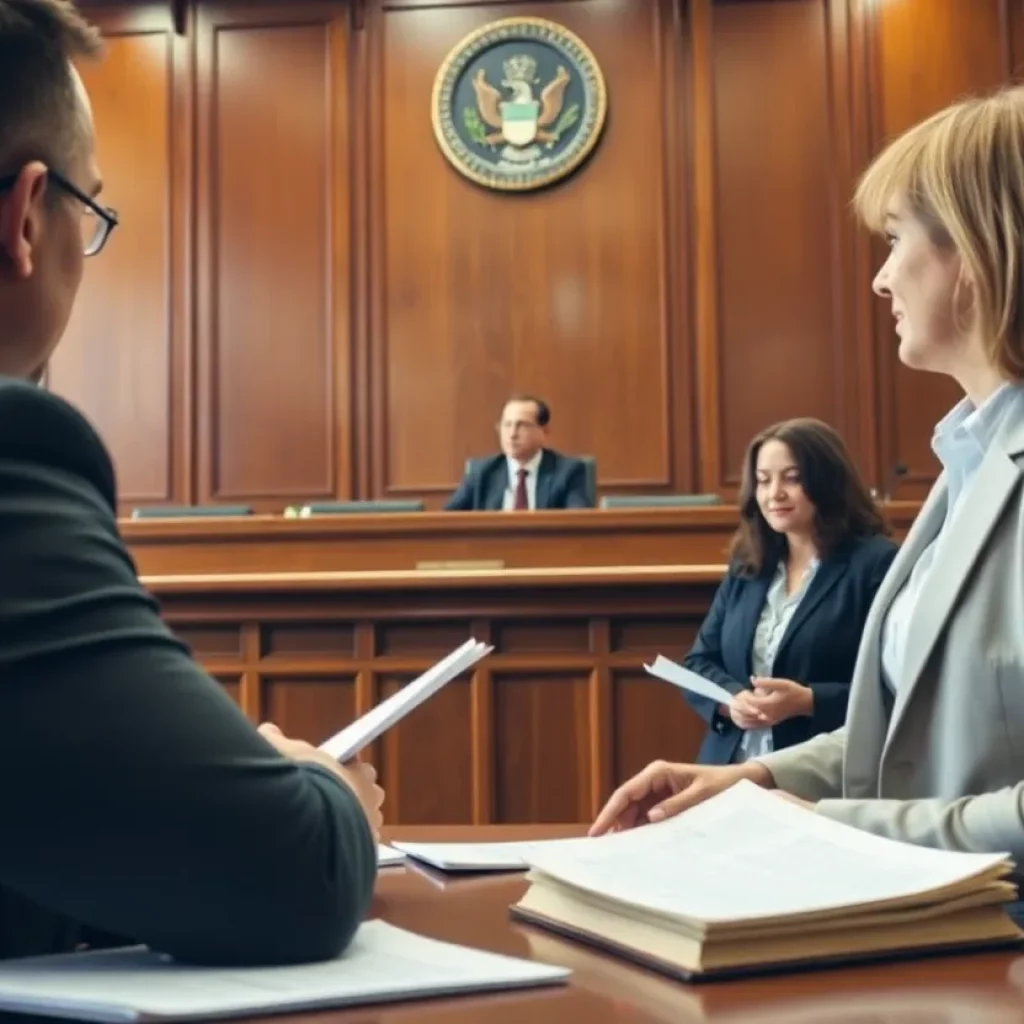News Summary
A Superior Court judge has upheld a jury verdict in favor of Union Carbide Corporation, exonerating them in a case involving Calidria asbestos. The ruling addressed claims that exposure led to severe health implications for the plaintiff. The judge found sufficient evidence supporting the jury’s conclusion that Calidria was neither dangerous nor defective, emphasizing the importance of juries in asbestos litigation. This ruling could significantly impact future asbestos liability claims.
Defense Verdict Upheld in Asbestos Lawsuit: Union Carbide Exonerated
In a significant development within the realm of asbestos litigation, a Superior Court judge has emphatically upheld a jury verdict in favor of Union Carbide Corporation (UCC) following a closely contested case involving its notorious Calidria asbestos. The case, which could have set profound precedents in product liability, was brought to the forefront when plaintiffs alleged that Calidria exposure resulted in severe health implications for the plaintiff, Bonne Bonito, diagnosed with peritoneal mesothelioma.
Judicial Findings and Jury Instructions
The honorable Judge Richard A. Licht meticulously evaluated the plaintiffs’ motion for a new trial, which was predicated on the assertion that there was insufficient evidence to warrant jury instruction number nineteen. This particular instruction catered to product liability protections under the Rhode Island General Laws, which could potentially exonerate UCC in cases where the product had been modified post-manufacture.
While the judge acknowledged that Calidria had merely been combined with other materials—specifically, within Georgia-Pacific joint compound—and not significantly modified, he concluded that this error in jury guidance ultimately remained harmless. The erroneous instruction constituted a mere fraction of the substantial 30-page jury instruction, meaning it did not fundamentally sway the jury’s overall deliberation.
Evaluating Liability Theories
The multifaceted nature of the plaintiffs’ claims introduced four distinct liability theories, all aimed at establishing that Calidria was either dangerous, defective, or unfit for use. Delving into the evidence presented during the trial, Judge Licht determined there was ample support for the jury’s conclusion that Calidria did not meet the threshold of being categorized as dangerous or defective.
Furthermore, the judge made a critical assessment regarding the plaintiffs’ expert testimonies, which professed the inherent dangers associated with all types of asbestos, including the chrysotile variety identified as Calidria. The defense, however, brought forth its own expert opinions contesting the assertion that chrysotile asbestos posed any credible danger, a factor that played a vital role in how the jury weighed the evidence.
The Court’s Ruling
In a comprehensive 53-page ruling titled *Day, et al. v. Union Carbide Corporation, Lawyers Weekly No. 61-040-25*, Judge Licht dismissed Union Carbide’s request for a judgment as a matter of law, underlining the jury’s autonomous role in interpreting the significant body of evidence. The judge’s ruling emphasizes the judiciary’s reliance on factual determinations made during trials, highlighting the importance of juries in adjudicating matters of asbestos exposure and corporate liability.
A Broader Impact on Asbestos Litigation
This ruling reflects a broader narrative within the ongoing legal landscape surrounding asbestos exposure and associated liability claims. With numerous lawsuits still probing the depths of asbestos-related health concerns, the ruling not only exonerates Union Carbide but also marks a substantial moment for corporations facing similar allegations.
The landscape of asbestos litigation has continually evolved, with previous outcomes setting crucial precedents for future cases. The implications of this ruling may resonate beyond this singular case, influencing how future trials approach the questions of product liability in relation to asbestos products. Legal experts and industry watchers will undoubtedly be keeping a keen eye on how courts interpret and adjudicate the complexities surrounding asbestos materials moving forward, especially as more evidence continues to emerge.
As the dust settles on this pivotal case, the legal community remains vigilant, anticipating how these court decisions will shape strategies for both plaintiffs and defendants in subsequent asbestos-related litigation.
Deeper Dive: News & Info About This Topic
HERE Resources
Lawyers Concerned as Asbestos Trusts Plan Document Destruction
Libby, Montana’s CARD Clinic Faces Closure Amid Legal Strife
Libby’s Asbestos Clinic Closure Sends Shockwaves Through Community
Celebrating Armed Forces Day: Legal Support for Veterans
Lawyers Embrace AI for Case Value Evaluation
Roman Austin Car Accident and Personal Injury Lawyers Rebrand for Growth
Charleston Fire Department Enhances Training With New Facilities
Closure of CARD Clinic Raises Health Concerns in Libby
Johnson & Johnson Talcum Powder Legal Battles: A Lawyer’s Perspective
Johnson & Johnson’s Legal Tensions with Mesothelioma Lawyer Escalate
Additional Resources
- R.I. Lawyers Weekly: Defense Verdict Upheld in Asbestos Suit
- Wikipedia: Asbestos
- R.I. Lawyers Weekly: Judge Denies CCRI Bid
- Google Search: Asbestos Litigation
- R.I. Lawyers Weekly: Rhode Island Senate Bill on School Bans
- Google Scholar: Asbestos Lawsuit
- R.I. Lawyers Weekly: Federal Judge Upholds Decision on Brown Employee
- Encyclopedia Britannica: Asbestos
- R.I. Lawyers Weekly: Ethics Commission Rules on Former Associate
- Google News: Asbestos Health Risks
Author: STAFF HERE CHARLESTON
The CHARLESTON STAFF WRITER represents the experienced team at HEREcharleston.com, your go-to source for actionable local news and information in Charleston, Charleston County, and beyond. Specializing in "news you can use," we cover essential topics like product reviews for personal and business needs, local business directories, politics, real estate trends, neighborhood insights, and state news affecting the area—with deep expertise drawn from years of dedicated reporting and strong community input, including local press releases and business updates. We deliver top reporting on high-value events such as the Spoleto Festival USA, Charleston Wine + Food Festival, and the MOJA Festival. Our coverage extends to key organizations like the Charleston Metro Chamber of Commerce and the Charleston Museum, plus leading businesses in tourism and maritime industries that power the local economy such as South Carolina Ports Authority and the Charleston Visitor Center. As part of the broader HERE network, including HEREaiken.com, HEREbeaufort.com, HEREchapin.com, HEREcharleston.com, HEREclinton.com, HEREcolumbia.com, HEREgeorgetown.com, HEREgreenwood.com, HEREgreenville.com, HEREhiltonhead.com, HEREirmo.com, HEREmyrtlebeach.com, HEREnewberry.com, HERErockhill.com, HEREspartanburg.com, HEREaustin.com, HEREcollegestation.com, HEREdallas.com, HEREhouston.com, and HEREsanantonio.com, we provide comprehensive, credible insights into South Carolina's dynamic landscape.










